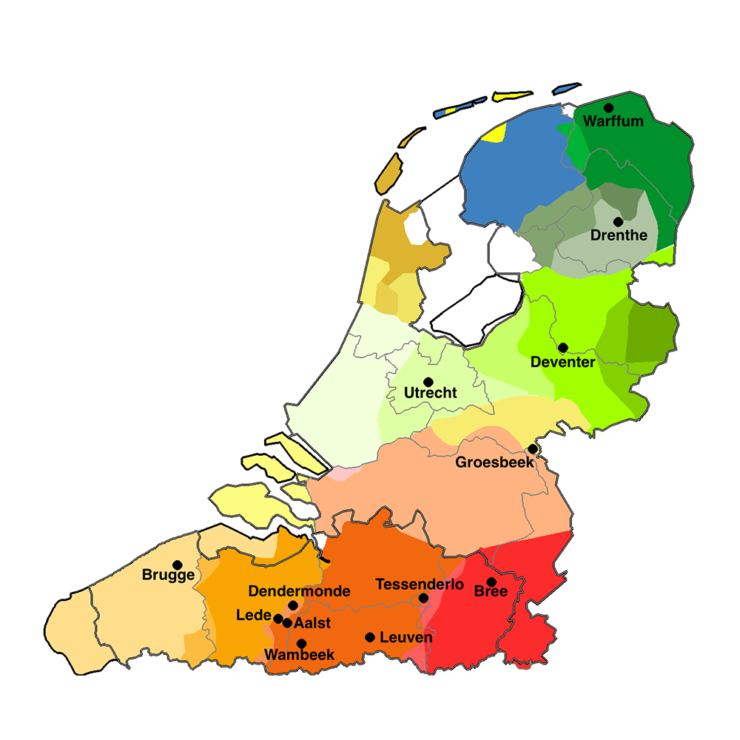The Digital Humanities Lab relaunches the ‘Dutch Dialect Idioms’ database, developed by linguists from Utrecht University and KU Leuven. This is a renewed version of an online database of idioms in 13 Dutch dialects.
Idioms are special, linguistically speaking, because they have a meaning that does not follow from their parts: when someone ‘kicked the bucket’, it means they have died, without any buckets involved. In the NWO-FWO project The Syntax of Idioms, that ran from 2013 to 2017, linguists from Utrecht University and KU Leuven studied idioms of Dutch dialects.
The original version of the database that emerged from this project was no longer accessible. Scientific developer Arjan Mossel of the Utrecht Digital Humanities Lab has now developed a new application that makes it possible for everyone to search the database online.

Unique database with idioms in dialects
Although there is quite some research on the origin and use of idioms, little was known about their grammar. Moreover, idioms in Standard Dutch have often been studied, but idioms in dialects have rarely been a topic of linguistic study. In order to fill these gaps, linguists from Utrecht University and KU Leuven studied the syntax of idioms in 13 Dutch dialects.
The researchers first collected idioms from dialect dictionaries, and subsequently described their grammatical properties. Then, they interviewed dialect speakers, mapping the grammatical possibilities of each idiom by introducing sentences with grammatical manipulations. They would ask, for example, whether it was possible to put the idiom in the past tense (‘Karen kicked the bucket’) or use it in a passive sentence (‘The bucket was kicked by Karen’).
The idioms and sentences with grammatical manipulations can be browsed per dialect in the Dutch Dialect Idioms database. The judgement of whether or not a manipulation was acceptable to the dialect speakers is listed for each sentence. The idioms and sentences can also be searched on the grammatical properties of idioms and the grammatical manipulations used in sentences.

More info
- All data obtained are now publicly accessible and easily searchable here.
- A more technical description of the database can be found here.
- Do you have questions about the database? Please contact Sterre Leufkens at s.c.leufkens@uu.nl.

